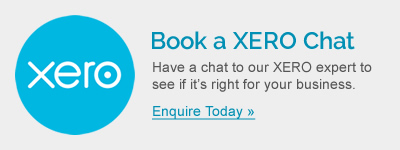A Guide To Discretionary Trusts in Australia
What Do We Mean By The Term ‘Trust’?
The term ‘trust’ refers to a relationship where an individual (known as a Trustee) holds an obligation to hold property which is for the benefit of someone else (known as the Beneficiaries). A trust deed will be formed between the Settlor and the Trustee, this will stipulate the terms of the obligation.
The legal ownership of the property falls with the trustee while the beneficial interest in the property is held by the beneficiaries.
What Do We Mean By The Term ‘Discretionary Trust’?
The term ‘discretionary trust’ (also known as a family trust) refers to the situation where a fixed interest or entitlement in trust funds is not held by the beneficiaries. It is at the discretion to the trustee to determine which of the beneficiaries will receive the income and capital of the trust, as well as the amount that each beneficiary would get. However, complete discretion is not held by the trustee. The terms of the trust deed stipulate a nominated class of beneficiaries between which the trustee must distribute the funds.
Who Are Involved In This Type Of Trust?
When setting up this type of trust four roles must be considered.
The Role Of The Settlor
This is the individual who sets up the trust by ‘settling’ a property or an amount of money on trust for the established beneficiaries.
The Role Of The Trustee
The trustee is not the beneficial owner but rather the legal owner of the trust property. It is the role of the trustee to care for all transactions related to the trust and sign all related documents for the trust. The main obligation of the trustee is to adhere to the terms of the trust deed and to ensure that the best interests of the beneficiaries are acted on.
The Role Of The Appointer
The individual who is named in the trust deed as having the authority to both remove and appoint trustees is the Appointer. Such a situation would typically happen when:
– The trustee passes away, is bankrupt or is incapacitated; for companies, if the company ceases to exist.
The Role Of The Beneficiaries
These are the individuals (this can also include entities) who will benefit from the trust property which is held by the trustee. Within a discretionary trust, there are normally a wide range of beneficiaries, often including other trusts and companies. An interest in the assets of the trust is not held by beneficiaries of a discretionary trust. Rather, the beneficiaries hold the right to be considered, or simply to have an expectation, until the time comes for the trustee to use its discretion and determine the distribution.
General beneficiaries are those who are named in the trust deed as being eligible for receipt of part of the capital or income as determined by the trustee (this must be approved by the Appointer). The rest of the beneficiaries are the individuals who have an automatic entitlement to a proportionate distribution of the capital or income where the trustee has not otherwise exercised its discretion.
A Look At The Trust Fund
The trust fund, as laid out in the terms of the trust, includes all of the property of the trust, this encompasses the settlement sum, income which has been accumulated, as well as any other property or money which is laid out in the terms of the trust as being held by the trustee.
A Look At The Trust Deed
The trust deed stipulates the relationship between the trustee and the beneficiaries. Within the trust deed, the two parties are the trustee and the settlor. Within the trust deed, the specific duties and powers of investment of the trustee, the beneficiaries, and other important points are stipulated.
What Is The Benefit Of Using A Discretionary Trust?
– Tax-related benefits
– Protection of assets
– Estate planning
– Land holdings.
In general, trusts provide a superior tax structure than a holding entity for fixed assets such as commercial real estate and investment because of a 1987 government decision to tax capital gains on the disposal of assets.
A fifty percent exemption from CGT is provided to individuals. For this exemption to apply the potential beneficiaries of a discretionary trust must be individuals (they cannot be companies).
Companies do not receive an exemption.
A Look At Income
As is noted by the name, the trustee in this trust type can determine annually which of the beneficiaries will receive income as a result of the trust’s activities. This provides significant benefit in the case of a considerable difference in the income of beneficiaries and provides grounds for an income gift at lower tax rates.
Below are a number of examples where a discretionary trust can be a beneficial vehicle in income distribution:
Spouses: The trust is in ownership of investment properties and receives related income. The husband works as a professional cyclist and makes $15,000 each year (after allowable deductions such as business travel and equipment). Wife has a partnership in a top class VIC Law Firm and makes a lot of money each year. Distributing the income to the husband who would then pay tax at a lower rate would be more efficient.
University Student: The parents are trustees to a family discretionary trust which generates a lot of income each year in its role as a holding company for the business with a licensed name of Joe’s Fun Toys’. The son is off to university, and the parents want to support him. Rather than paying him from their ‘after-tax money’ they can use their role as trustee to distribute income to him, this will most likely benefit from a lower tax rate.
* It is important to note that this is not an effort to provide advice on taxation. You should ask your accountant for advice on your specific situation before you make any choices related to your tax requirements. The name ‘Joe’s Fun Toys’ is a fictional name.
A Look At Asset Protection
A discretionary trust allows the trustee to hold property for the benefit of the beneficiaries. With the exception of creditor debt which is seen as trust debt, property which is in ownership of a trustee is not able to be touched by a creditor in the event of bankruptcy. In the same way, unless the debt is viewed as trust debt, company property which is held in a trust by a trustee cannot be touched by creditors in the event of company liquidation. Only creditors of the trust can make such an attack on properties which are held in the trust.
At What Point Will This Be Effective?
A golfer must pay $2M in damages due to an incident involving another individual. The golfer does not own property in his own name, but he is a trustee of a trust which has a number of investment properties which come to a value of $2M. Is the creditor able to attack the assets of the trust? No, this is not possible.
Trading starts for a new deli at Old Town by A & B. A lease is signed for a 5 year period. The business does not go well and the landlord is able to obtain a judgement against A & B (both jointly and severally) for an amount of $320K. A & B enter into bankruptcy.
A has a spouse, X and they have a family property as well as an investment property, the total equity for both properties is $200K. A loses everything and has to manage the bankruptcy trustee as well as provide $100K. This is not possible so the family property is sold.
B does not have ownership of anything. His wife owns the family home and a family trust is in place which owns 2 investment properties. B keeps ownership of the family home and the trust assets are protected.
* It is important to note that this situation may differ depending on the circumstances. It is our recommendation that you take specific advice on the protection of your principal residence as well as your equity.
A Look At Estate Planning
Both parents die and the son is left bankrupt. The parents leave all assets to their son. The complete estate is lost in bankruptcy to the trustee.
If the parents had put a discretionary trust in place for their estate the complete estate would have been saved. As an alternative, if correct estate planning had been in place, asset protection would have been possible in advance of the death of both parents.
How Is A Discretionary Trust Set Up?
We would be happy to talk and assist you with the right decision, please make contact with us to find out more details.




